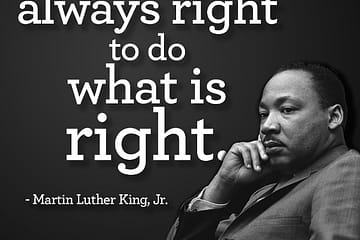As Generation Z (those born between 1997 and 2012) begins to dominate the workforce, it’s becoming increasingly clear that their work ethic is distinct from that of previous generations. With unique perspectives shaped by technological advancements, economic challenges, and cultural shifts, Gen Z brings fresh approaches to the workplace. This article delves into five unique characteristics of Gen Z work ethic, exploring how these traits are transforming the modern work environment.
Click for the awareness of the Generation Z work ethic: Defending the younger working generation
- Tech-Savviness and Digital Proficiency
One of the most defining features of the Gen Z work ethic is their unparalleled tech-savviness. Growing up in an era where smartphones, social media, and digital technology are ubiquitous, Gen Z workers are inherently proficient with modern tools and platforms. This digital fluency allows them to adapt quickly to new technologies and leverage them to enhance productivity and innovation.
Impact on the Workplace
Gen Z’s comfort with technology translates into several workplace advantages:
- Efficiency: They can quickly learn and navigate new software, tools, and systems, increasing overall efficiency.
- Innovation: Their familiarity with digital trends and platforms can drive innovative solutions and creative problem-solving.
- Remote Work: The ability to seamlessly use digital communication and collaboration tools makes Gen Z particularly adept at remote and hybrid work environments.
Practical Examples
In practical terms, Gen Z employees might use project management software like Trello or Asana to streamline tasks, employ social media for marketing strategies, or utilize data analytics tools to derive actionable insights. Their ability to effortlessly integrate these technologies into their workflows sets them apart from previous generations.
- Value-Driven and Purpose-Oriented
Another unique characteristic of the Gen Z work ethic is their strong inclination towards value-driven and purpose-oriented work. Unlike previous generations who might have prioritized job security or salary, Gen Z is deeply motivated by the values and mission of the organizations they work for. They seek out employers whose values align with their own and are drawn to roles that offer a sense of purpose.
Impact on the Workplace
This value-driven approach influences various aspects of the workplace:
- Company Culture: Organizations need to cultivate a culture that reflects strong ethical standards and social responsibility to attract and retain Gen Z talent.
- Corporate Social Responsibility (CSR): Companies with robust CSR programs and a commitment to social and environmental issues are more likely to appeal to Gen Z employees.
- Employee Engagement: When Gen Z workers feel their work contributes to a greater cause, their engagement and job satisfaction increase.
Practical Examples
Gen Z employees might prioritize working for companies that focus on sustainability, social justice, or community impact. For instance, they may prefer joining a tech firm that emphasizes environmental sustainability or a nonprofit organization dedicated to social change.
- Desire for Continuous Learning and Growth
Gen Z’s work ethic is also characterized by a strong desire for continuous learning and growth. This generation values opportunities for professional development and is eager to acquire new skills and knowledge. They expect employers to provide avenues for learning and growth, whether through formal training programs, mentorship, or on-the-job experiences.
Impact on the Workplace
This characteristic drives several workplace trends:
- Learning and Development Programs: Companies must invest in robust training and development programs to meet the expectations of Gen Z employees.
- Mentorship and Coaching: Establishing mentorship programs can help facilitate the continuous learning that Gen Z values.
- Career Progression: Transparent career paths and opportunities for advancement are essential to keeping Gen Z engaged and motivated.
Practical Examples
Gen Z employees might seek out companies that offer regular workshops, access to online courses, or opportunities to attend industry conferences. They are likely to value feedback and guidance from more experienced colleagues and appreciate clear pathways for career progression within the organization.
- Emphasis on Work-Life Balance
A notable characteristic of the Gen Z work ethic is their emphasis on work-life balance. Having witnessed the stress and burnout experienced by previous generations, Gen Z prioritizes their well-being and seeks roles that offer flexibility and a healthy balance between work and personal life. They value flexible working hours, remote work options, and a supportive work environment that respects their need for downtime.
Impact on the Workplace
This emphasis on work-life balance affects workplace policies and culture:
- Flexible Work Arrangements: Employers need to offer flexible schedules and remote work options to attract and retain Gen Z talent.
- Wellness Programs: Companies should implement wellness initiatives that promote physical and mental health.
- Supportive Culture: Creating a supportive and inclusive workplace culture that respects work-life boundaries is crucial.
Practical Examples
Gen Z employees might gravitate towards companies that offer remote work opportunities, flexible scheduling, and comprehensive wellness programs. They are likely to appreciate employers who encourage taking breaks, provide mental health resources, and promote a healthy work-life integration.
- Collaborative and Inclusive Approach
The Gen Z work ethic is also marked by a collaborative and inclusive approach. This generation values teamwork and inclusivity, preferring to work in environments that foster collaboration and diversity. They are open to different perspectives and seek to create a workplace where everyone feels valued and included.
Impact on the Workplace
This approach influences several workplace dynamics:
- Team Collaboration: Gen Z thrives in team-oriented settings and prefers collaborative projects over isolated tasks.
- Diversity and Inclusion (D&I): Companies must prioritize D&I initiatives to create a workplace that appeals to Gen Z’s inclusive values.
- Communication: Open and transparent communication is vital for fostering the collaborative environment that Gen Z desires.
Practical Examples
Gen Z employees are likely to excel in roles that require teamwork and collective problem-solving. They appreciate workplaces that celebrate diversity and inclusion and are drawn to companies that actively promote these values. For instance, they might prefer working in organizations that have diverse teams, inclusive policies, and a strong emphasis on collaborative efforts.
What are the traits of Gen Z work ethic?
Gen Z is often seen as very hardworking. Scientific research shows that many in this generation are very focused on their jobs and education. They use technology well to get things done faster and are good at multitasking. Many studies say that Gen Z is very determined to succeed, even if they face stress and mental health issues. They want to make a difference in the world and are willing to work hard for it.
Is Gen Z the hardest working generation?
Gen Z is often seen as very hardworking. Scientific research shows that many in this generation are very focused on their jobs and education. They use technology well to get things done faster and are good at multitasking. Many studies say that Gen Z is very determined to succeed, even if they face stress and mental health issues. They want to make a difference in the world and are willing to work hard for it.
Conclusion
The Gen Z work ethic is transforming the modern workplace in profound ways. Their tech-savviness, value-driven approach, desire for continuous learning, emphasis on work-life balance, and collaborative nature set them apart from previous generations. Understanding these unique characteristics can help employers create a more engaging and supportive work environment that harnesses the full potential of Gen Z talent. By aligning workplace practices with the values and expectations of Gen Z, organizations can foster a motivated, innovative, and productive workforce that drives future success.
Related Articles
5 Interesting Facts About Millennials
Why Does Gen Z Have the Most Mental Health Issues




0 Comments